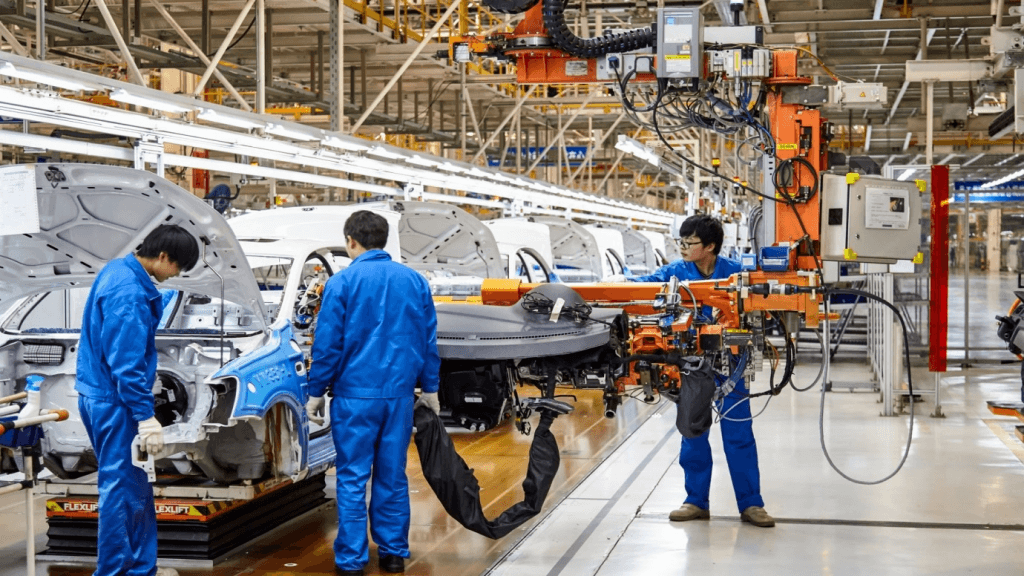
Canada Appeals for International Firefighting Aid
June 09, 2025: Canada has issued an international appeal for firefighting support as wildfires intensify across multiple provinces

May 30, 2023: The Profits of China’s industrial firms declined in the foremost four months of 2023, official data showed, as companies struggled with margin pressures and soft demand amid a faltering economic recovery.
Profits fell 20.6% in January-April from a year earlier, compared with a 21.4% decline in the first three months, according to information from the National Bureau of Statistics (NBS).
In April alone, industrial firms posted an 18.2% drop in profit year-on-year, according to the NBS, which only occasionally gives monthly figures. Profits shrank 19.2% in March.
“Overall, today’s data shows that industrial enterprises, especially private and equity-owned enterprises, continue to be affected by a combination of unfavorable factors such as the base effect, short-term pressure on the economic recovery, and the downward trend of PPI (producer prices),” said Bruce Pang, chief economist at Jones Lang Lasalle.
Chinese companies need help with weak domestic and softening demand in the country’s major export markets. Producer deflation deepened in April, with the producer price index (PPI) falling at the fastest since May 2020.
Lenovo, the world’s largest PC maker, said this week that quarterly revenue and profit tanked in January-March, and it had cut 8% to 9% of its workforce to reduce costs as global demand for personal computers (PCs) continued to slump.
Producers of steel and other industrial metals are also hurting. Steel prices that reinforce bars used in construction hit the lowest level in three years this week; only a third of the country’s mills are operating at a profit, according to consultancy Mysteel.
“There is still some pressure felt in May due to the difference amid the purchase and sales prices, with steel prices falling in the month because of the slower-than-expected demand recovery,” Baosteel, a subsidiary of the world’s largest steelmaker-China Baowu Steel Group, said in an investor interactive platform on May 22.
Foreign firms saw their profits slide 16.2% in January-April from a year earlier, while private-sector firms recorded a 22.5% plunge, according to a breakdown of the data.
We provide the insights on leaders who are responsible for taking their organization to new heights, all the while bringing together a group of talented individuals.

June 09, 2025: Canada has issued an international appeal for firefighting support as wildfires intensify across multiple provinces

May 27, 2025: Air Canada Cuts Five U.S. Routes for Winter 2025–26, Part of Broader Cross-Border Retrenchment

May 26, 2025: Trump Freezes $2.2B in Federal Grants to Harvard Over DEI, Threatens Tax-Exempt Status.

May 14, 2025: Microsoft has announced plans to reduce its global workforce by approximately 3%, affecting roughly 10,000 employees across multiple departments.

May 13, 2025: The Trump administration is considering suspending the constitutional right of habeas corpus in a bid to accelerate mass deportations.

April 29, 2025: Donald Trump’s second term has reached the 100-day mark under sustained public skepticism, with national approval ratings